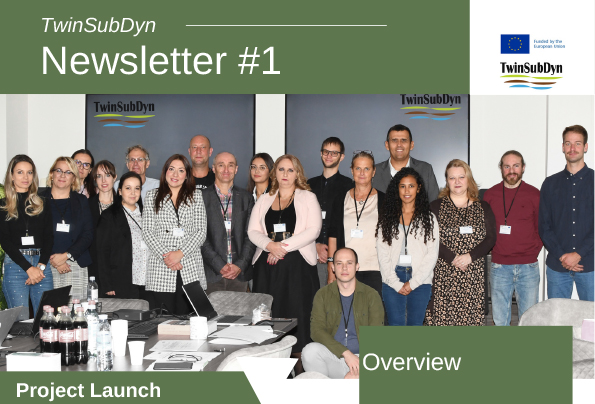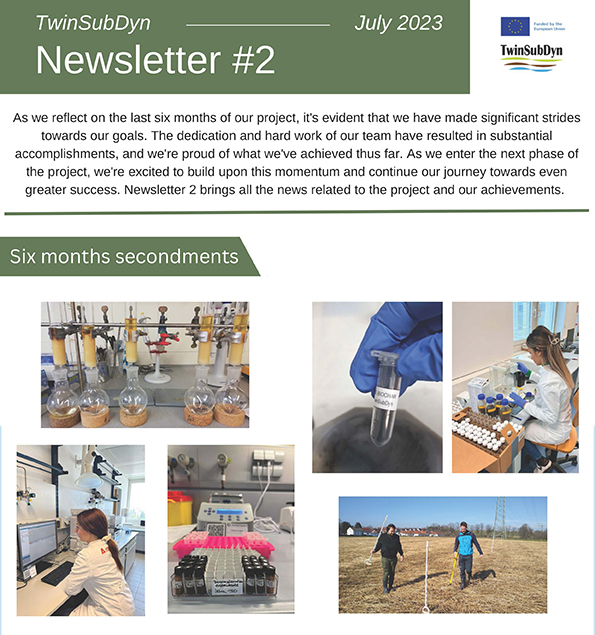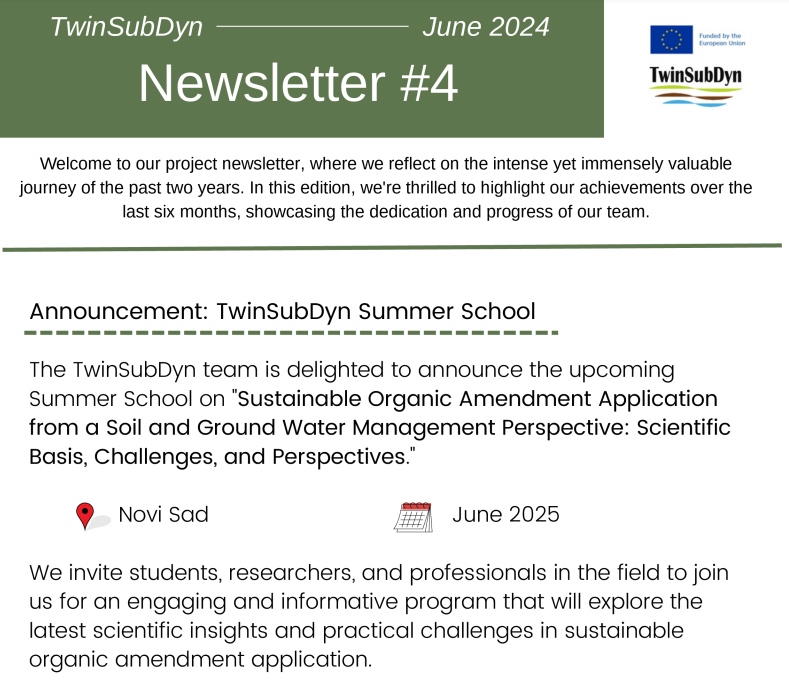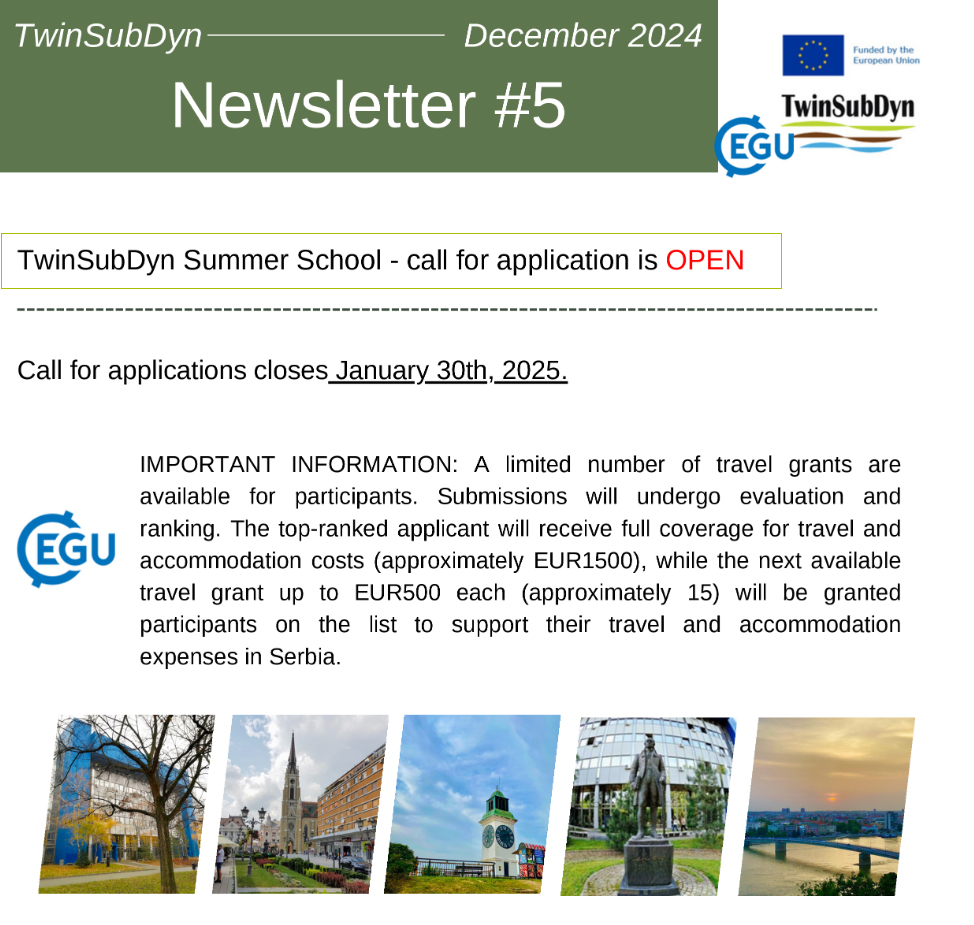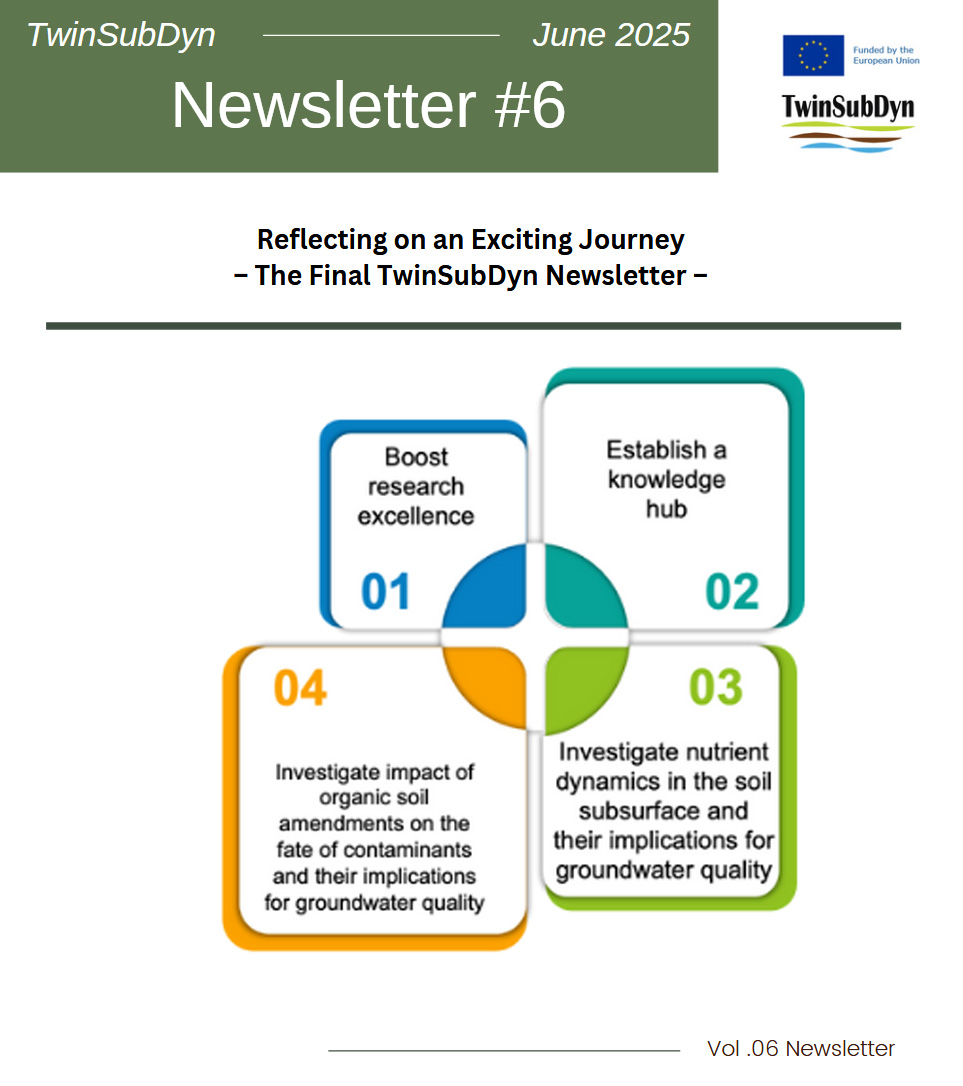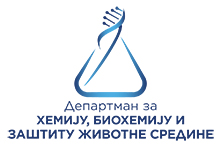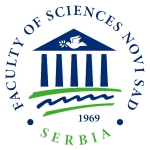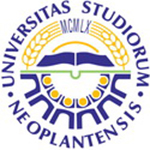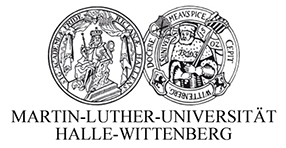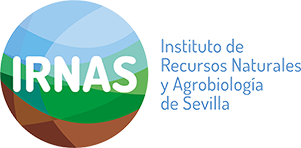WELCOME TO TWINSUBDYN
PROJECT ID
Project title: Twinning excellence on organic soil amendments effect on nutrient and contaminant dynamics in the subsurface
Project acronym: TwinSubDyn
Project coordinator: Prof. dr Snežana Maletić
GA Number: 101059546
Call identifier: Twinning Western Balkans HORIZON-WIDERA-2021-ACCESS-02
Topic: HORIZON-WIDERA-2021-ACCESS-02-01
Start date of project: 01/08/2022
Duration: 36 months
Project partners:
| N° | Short | Beneficiary | Role |
| 1 | UNSPMF | University of Novi Sad Faculty of Sciences | CO |
| 2 | UNIVIE | University of Vienna | BEN |
| 3 | FZJ | Forschungszentrum Jülich | BEN |
| 4 | MLU | Martin-Luther-Universität Halle-Wittenberg | BEN |
| 5 | CSIC | Spanish National Research Council | BEN |
Project concept
The Western Balkan is an integral part of Europe and a geostrategic priority for the European Union. In this area agriculture and food production is cited by government and stakeholder groups as one of the most prominent priority domains, and the most relevant for research and innovation. Globally, current agricultural practices result in harmful environmental effects, including three key problems: deterioration of soil as a key non-renewable resource in our lifetime, groundwater pollution, and increasing agricultural residues. In the northern part of Serbia, 82% of the area is used for agriculture. Therefore, it has been recognized the urgent need to shift towards environmentally sustainable food production. This may be achieved by focusing on integrated systems of crop and livestock production which enables optimum utilization of resources following concepts of circular economy. Thereby, a widespread use of organic soil amendments in agriculture is foreseeable. These amendments may include anaerobic digestate, manure, sewage sludge, compost, as well as biochar. The potential for the application of organic soil amendments is growing in the Western Balkan. This is mostly due to rapid increase of biogas energy production, installation of wastewater treatment plants, and to a smaller extent compost- and biochar production. These amendments will affect soil structure, element cycling, and nutrient composition in the soil. Organic soil amendments can be a source and/or a sink of nutrients as well as organic and inorganic pollutants (predominately pharmaceuticals, pesticides and microplastics). Thus, they are expected to affect soil and groundwater quality. Modulated organic matter dynamics caused by organic soil amendments are expected to affect contaminant and colloid fate, with additional implications for groundwater quality.
Objectives
Twinning excellence on organic soil amendments effect on nutrient and contaminant dynamics in the subsurface (TwinSubDyn) aims to boost research excellence of University of Novi Sad, Faculty of Sciences and establish a knowledge hub based in Serbia to address unresolved challenges on the impact of organic soil amendments on the fate of contaminants (pharmaceuticals, pesticides, microplastics), and nutrient dynamics in the soil subsurface and their implications for groundwater quality.
To significantly advance the roadmap of Research and Inovation and strengthen the research position in the defined field, University of Novi Sad, Faculty of Sciences will link with 4 cross-disciplinary leading partners University of Vienna, Forschungszentrum Jülich, Martin Luther University Halle-Wittenberg and Consejo Superior de Investigaciones Científicas. Each scientific partner will be committed to transfer specific knowledge and expertise: (1) Bridge knowledge on soil organic matter dynamics and its effect on nutrient, contaminant mobility and transformation with hydrogeological modelling and state of the art analytical techniques. (2) Build-up the capacity to elucidate element cycling via isotopically labelled substances with a special focus on soil organic matter, which governs many processes in the subsurface. The overarching goal of the project to step up and stimulate both the scientific excellence and innovation capacity and institutional research support and administration will be reached through 4 specific objectives:
S01:
To network for excellence through knowledge transfer and exchange of best practice between University of Novi Sad, Faculty of Sciences and renowned leading partners University of Vienna, Forschungszentrum Jülich, Martin Luther University Halle-Wittenberg and Consejo Superior de Investigaciones Científicas - through short-term scientific missions of qualified and early-stage researchers. Strengthening research management and administration capacities at University of Novi Sad, Faculty of Sciences. Establish long-lasting strategic partnerships with leading European institutions in the field.
S02:
To significantly raise reputation, research profile and attractiveness of University of Novi Sad, Faculty of Sciences and its staff - through delivering lectures by experts, organization of workshops and summer schools, establishment of a virtual knowledge platform at University of Novi Sad, Faculty of Sciences, development of Science and Innovation Strategy and action plan for University of Novi Sad, Faculty of Sciences.
OUR ACHIVEMENT
5
INSTITUTION37
TEAM MEMBERS295
NUMBER OF TRAINEES6
EVENTSLATEST NEWS & EVENTS
Summer School
on Sustainable organic amendment applications from a soil and ground water management perspective
-learning, training, and knowledge exchange activity-
Read More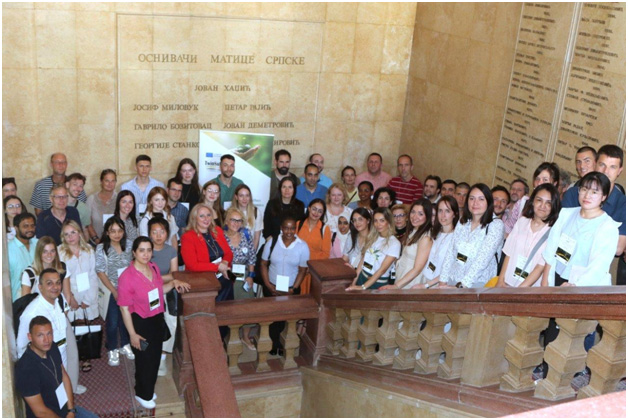
TwinSubDyn Summer School – Empowering the Next Generation of Environmental Scientists
From June 2nd to 6th, 2025, the Faculty of Sciences, University of Novi Sad, proudly hosted the TwinSubDyn Summer School—a key capacity-building event within the TwinSubDyn project. The summer school brought together over 50 young researchers, MSc and PhD students, and early-career professionals from across the world, united by a shared interest in subsurface processes, environmental monitoring, and soil–water–pollutant interactions.
Focus and Topics
The main theme of the school was “Sustainable organic amendment applications from a soil and ground water management perspective” and the program was carefully designed to offer a balance between theoretical knowledge and practical skills. Participants had the opportunity to explore a range of interconnected topics, including:
• Soil and groundwater contamination pathways
• Transport and fate of pollutants in different soil types
• Role of soil physico-chemical properties in pollutant dynamics
• Field sampling techniques and in situ measurements
• Advanced analytical methods for soil and water analysis
• Data interpretation and modeling approaches in environmental studies
Lecturers and Learning Environment
The school featured keynote speakers, renowned international experts and TwinSubDyn partners from institutes, faculties and industry, as well as leading researchers from the University of Novi Sad. Lecturers included:
• Dr. Thomas D. Bucheli, heads the research group “Environmental Analytics” at Agroscope, the Swiss centre of excellence for agricultural research
• Dr. Boris Đurđević, from the Faculty of Agrobiotechnical Sciences Osijek
• Dr. David Fangueiro, Assistant Professor at the Instituto Superior de Agronomia da Universidade de Lisboa (Portugal)
• Zoran A. Galić, Scientific counselor working in University of Novi Sad Institute of Lowland Forestry and Environment
• Dipl. Ing. Helmut Gerber, Managing Director of PYREG GmbH, which he founded in 2009 as a spin-off from the Technical University of Bingen.
• Dr. Marina Paneque from the Agricultural Faculty of Seville University
• Dr. Gabriel Sigmund, Assistant Professor in the micropollutant Group at ETE
• Dr. Claudia Kammann, co-heads the department of Applied Ecology, Hochschule Geisenheim University
• Dr. Snežana Maletić, full professor at UNSPMF
• Dr. Heike Knicker, research professor at the CSIC-IRNAS and is chief of the solid-state NMR service unit of the institute
• Dr. Bruno Glaser, full professor at Martin-Luther-University Halle-Wittenberg, Germany
• Dr. Roland Bol, a Research leader in Helmholtz Forschungszentrum Jülich in Germany
• Dr. Lutz Weihermüller, a Senior Researcher at Forschungszentrum Jülich
• Dr. Thilo Hofmann, Professor of Environmental Geosciences, University of Vienna
• Dr. Thorsten Hüffer, Senior Scientist at the Department of Environmental Geoscience, University of Vienna
Their lectures sparked dynamic discussions and offered insights into real-world research challenges and best practices in environmental science.
Hands-On Experience and Collaboration
In addition to lectures and interactive seminars, the participants engaged in hands-on laboratory exercises and fieldwork activities, gaining practical experience in sampling, data collection, and analysis. The interdisciplinary nature of the school fostered collaborative learning, encouraging participants from diverse backgrounds to exchange ideas and form new professional connections.
The atmosphere throughout the week was both intellectually stimulating and collegial, creating a perfect environment for knowledge exchange, mentorship, and international networking.
Looking Ahead
The TwinSubDyn Summer School exemplifies the project’s commitment to capacity building and education in environmental sciences, particularly in the Western Balkans region. By investing in young researchers and facilitating access to high-level training and international expertise, the project aims to leave a lasting legacy beyond its formal duration.
We extend our sincere thanks to all lecturers, organizers, and participants for contributing to the success of this enriching event—and we look forward to many future collaborations that were sparked during this inspiring week in Novi Sad.
TwinSubDyn Consortium
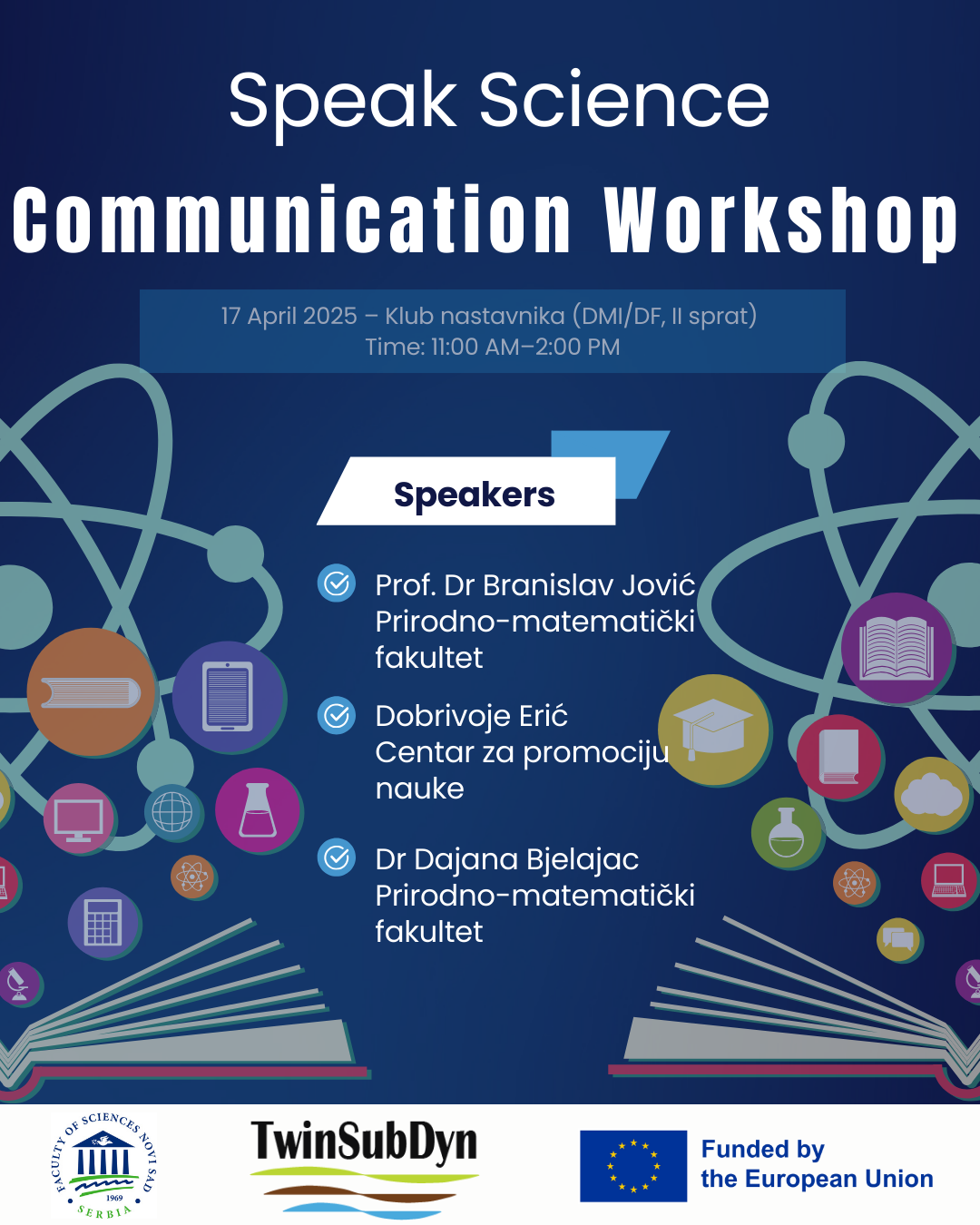
How can science speak clearly and reach everyone?
The TwinSubDyn Science Communication Workshop, aimed at enhancing science communication competencies and promoting scientific engagement with wider audiences, was held on April 17, 2025, at the Faculty of Sciences, University of Novi Sad, the coordinating institution of the TwinSubDyn project. The primary objective of the workshop was to explore the evolving field of science communication and emphasize the importance of disseminating research findings in a manner that inspires positive societal change, enhances public understanding and capacity, and fosters innovative thinking.
The event attracted a substantial number of participants, reflecting the growing interest among researchers in maximizing the societal impact of their work through effective, engaging, and accessible communication. Esteemed speakers, all actively involved in science communication, delivered interactive lectures and facilitated open discussions on strategies for reaching target audiences and media, rebuilding public trust in science, and inspiring future academic careers.
Dr. Branislav Jović, Full Professor at the Faculty of Sciences, University of Novi Sad, addressed the challenges faced by the scientific community, including balancing project deliverables and administrative tasks, navigating critical peer review, and dealing with media misrepresentations of scientific findings. He also highlighted the pivotal role of decision-makers as key stakeholders in the journey from ideas to technologies and, ultimately, societal progress.
Dobrivoje Erić, Head of the Department of International Cooperation at the Center for the Promotion of Science (CPN), presented on the topic "How to Communicate Science to (Un)Desired Audiences." He introduced a variety of methodologies for engaging non-scientific audiences, emphasizing the importance of including laypeople in the research process and facilitating a mutual exchange of knowledge, inspiration, and practice.
Dr. Dajana Bjelajac, Assistant Professor at the Faculty of Sciences, University of Novi Sad, spoke on transforming science into an engaging experience. She discussed the issue of light pollution and the significance of preserving the natural night sky, illustrating how such topics can ignite curiosity and foster deeper connections with science.
Participants actively explored strategies to make science more visible, compelling, and approachable to non-academic communities. The overarching aim of the workshop was to empower researchers to communicate their work in innovative and relatable ways, encouraging broader societal engagement.
The Speak Science Communication Workshop reaffirmed the critical role of science communication—not only as a valuable skill but also as a core responsibility of researchers—to ensure their work has a lasting, meaningful impact beyond the lifespan of individual projects.
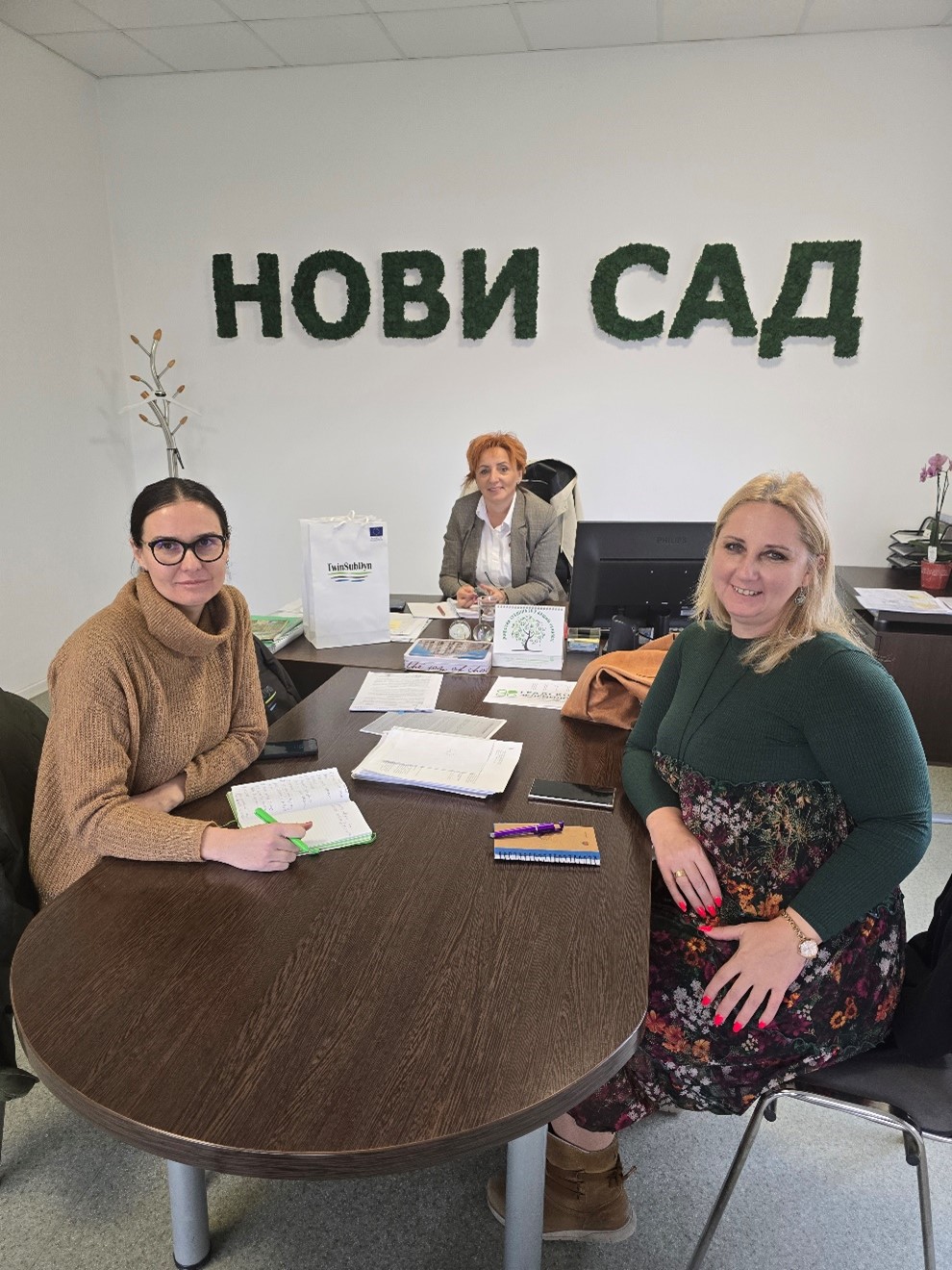
Follow-Up Meeting: Advancing the "Green Waste for Green Economy" Project
As part of the activities within the "Green Waste for Green Economy" project, Dr. Marijana Kragulj Isakovski and Dr. Snežana Maletić, participants in the project, recently visited JKP "Gradsko Zelenilo" Novi Sad.
This visit served as a follow-up meeting to the workshop held in March 2024 under the TwinSubDyn project. During discussions with Assistant Directors Danijela Andrić and Jelena Prica, the focus was on defining avenues for future collaboration to further project goals.
About the Project: The "Green Waste for Green Economy" project, coordinated by the Faculty of Sciences at the University of Novi Sad and funded by the City Administration for Environmental Protection of Novi Sad, aims to explore innovative uses of green biomass collected from public green spaces to produce biochar.
Collaborative Efforts: JKP "Gradsko Zelenilo" actively contributes to this process by ensuring the collection and availability of green waste as raw material for biochar production. These efforts align with ongoing research from the TwinSubDyn project, part of the Horizon Europe program, which examines the impact of organic soil amendments on nutrient and contaminant dynamics in subsurface environments.
This follow-up meeting reinforces the partnership's commitment to advancing sustainable practices and fostering green economic growth.
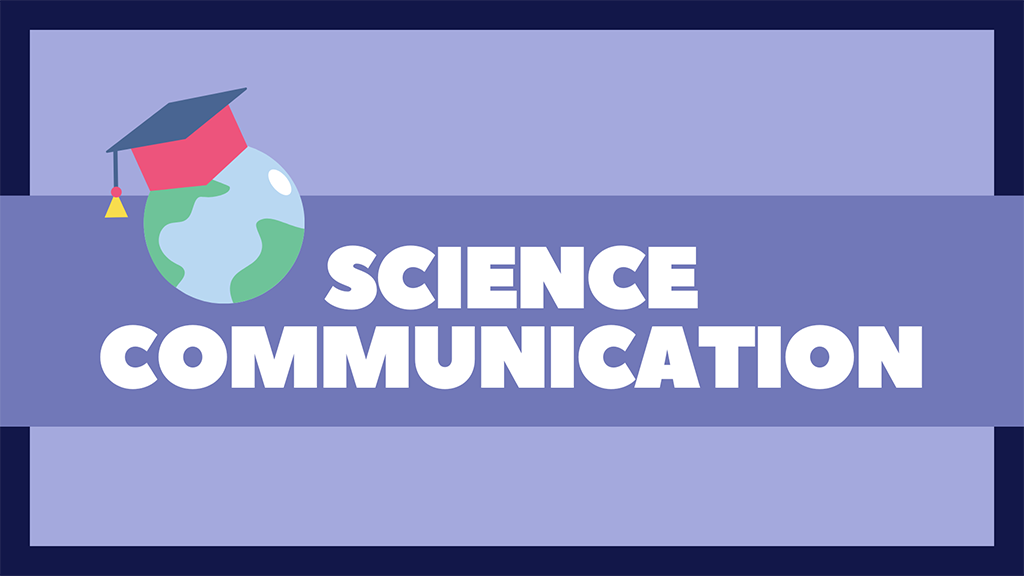
TwinSubDyn Team Members Enhance Research Communication Skills at Recent Workshops
The TwinSubDyn team is pleased to announce the active participation of its members in two significant workshops focused on improving research communication.
On September 30th and October 1st, 2024, team members took part in the SmartWaterTwin workshop, "Communication Skills for Greater Impact of Your Research," hosted at the Faculty of Sciences, University of Novi Sad. This event aimed to help researchers refine their abilities in drafting effective Communication, Dissemination, and Exploitation (CDE) plans for project proposals. Participants engaged in practical exercises and group work, honing their verbal and nonverbal communication skills, and learning how to better communicate their scientific work within the Horizon Europe framework. This invaluable training equips our team with advanced strategies to reach target audiences more effectively.
Further enhancing her expertise in science communication, team member Dr. Jelena Beljin attended the "Communicating Your Research to Non-Specialists – Nature Masterclass" on October 4th, 2024. This full-day workshop, organized by BIO4 Campus in partnership with Springer Nature, was led by Dr. Jeffrey Robens, an expert in scientific communication. The event focused on helping researchers present their work in an engaging way to non-expert audiences. Dr. Beljin, along with other participants, explored techniques for writing accessible scientific content, understanding audience perspectives, and utilizing social media and AI to amplify research impact.
These workshops demonstrate TwinSubDyn’s commitment to enhancing communication skills, ensuring that our scientific contributions are more accessible and impactful. We are excited to implement the new strategies learned as we continue advancing our research and public engagement efforts.

Fifth Follow up
On June 19th, Marijana Kragulj Isakovski met with Jelena Moravski, a representative of the city administration for environmental protection, to discuss the TwinSubDyn project and its main results. During the meeting, Jelena Moravski presented the GIS Novi Sad application (zelenilo.com), which maps and analyzes all green surfaces in the city. The city administration approved a project proposal focused on utilizing green waste for a green economy, aiming to produce biochar from green biomass in Novi Sad with comprehensive characterization and evaluation of potential applications. It was concluded that joint efforts in environmental care should be prioritized to enhance living standards and wellbeing for all citizens.
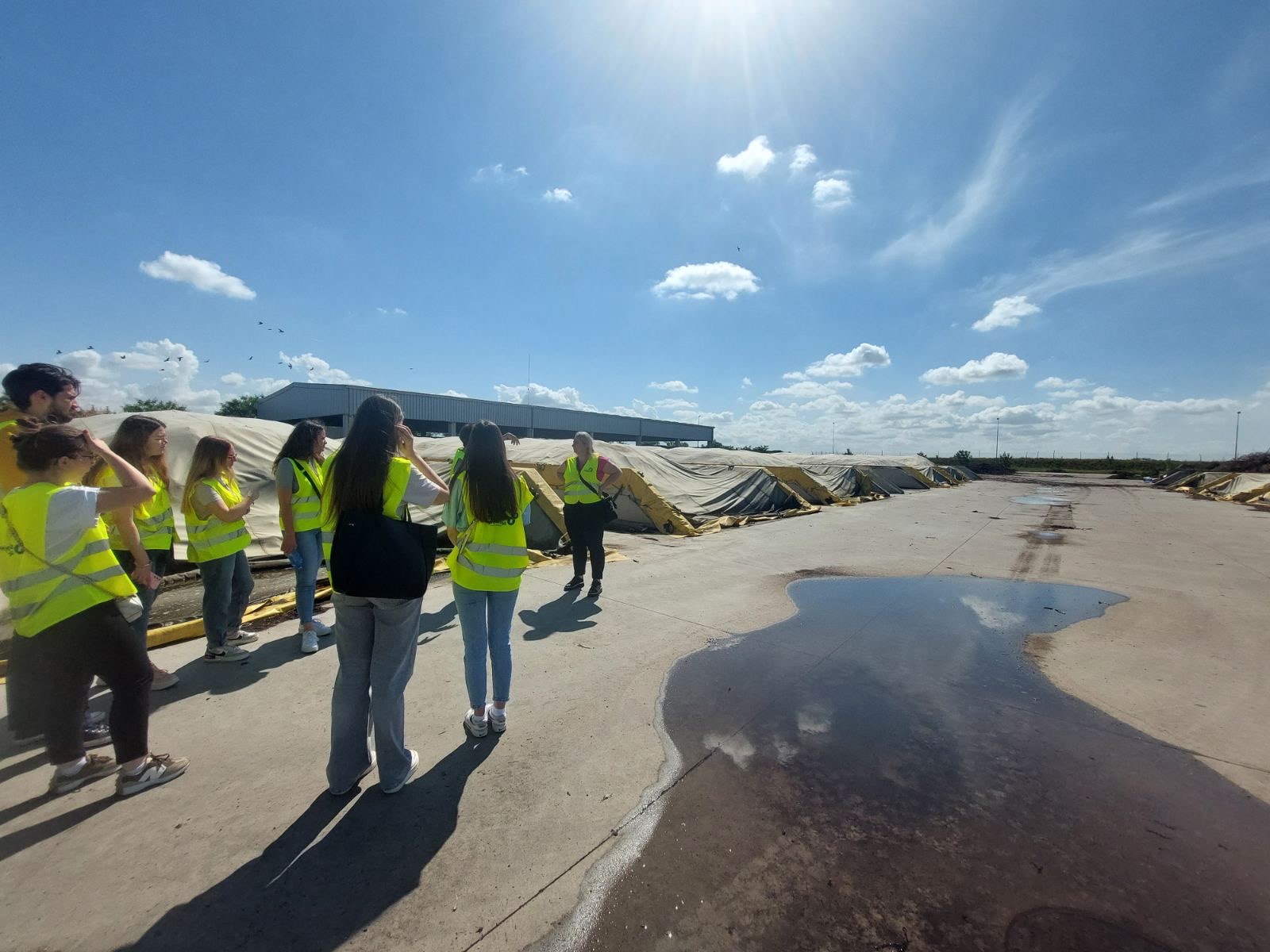
The fourth follow-up meeting at Regional Landfill doo Subotica, held in May 2024, built on the successful workshop in March titled "Overcoming Challenges in the Application of Organic Soil Additives - Synergy of Science and Economy." Our host was Bjanka Čuturilo.
Regional Landfill doo Subotica employs specialized technology to produce high-quality compost. This compost is made from anaerobically stabilized sludge, transported on a regulated schedule from the Subotica Wastewater Treatment Plant, and biomass (green waste) collected through the regional waste management system. Key conclusions from the meeting included the need for enhanced collaboration between scientific research and economic strategies to optimize compost quality and the importance of expanding educational initiatives to promote the benefits of organic soil additives in sustainable agriculture. Participants also discussed the potential for scaling up production to meet increasing demand and the necessity of implementing stricter quality control measures to ensure consistency in compost performance. The meeting underscored the pivotal role of integrated waste management practices in fostering environmental sustainability and economic growth in the region.
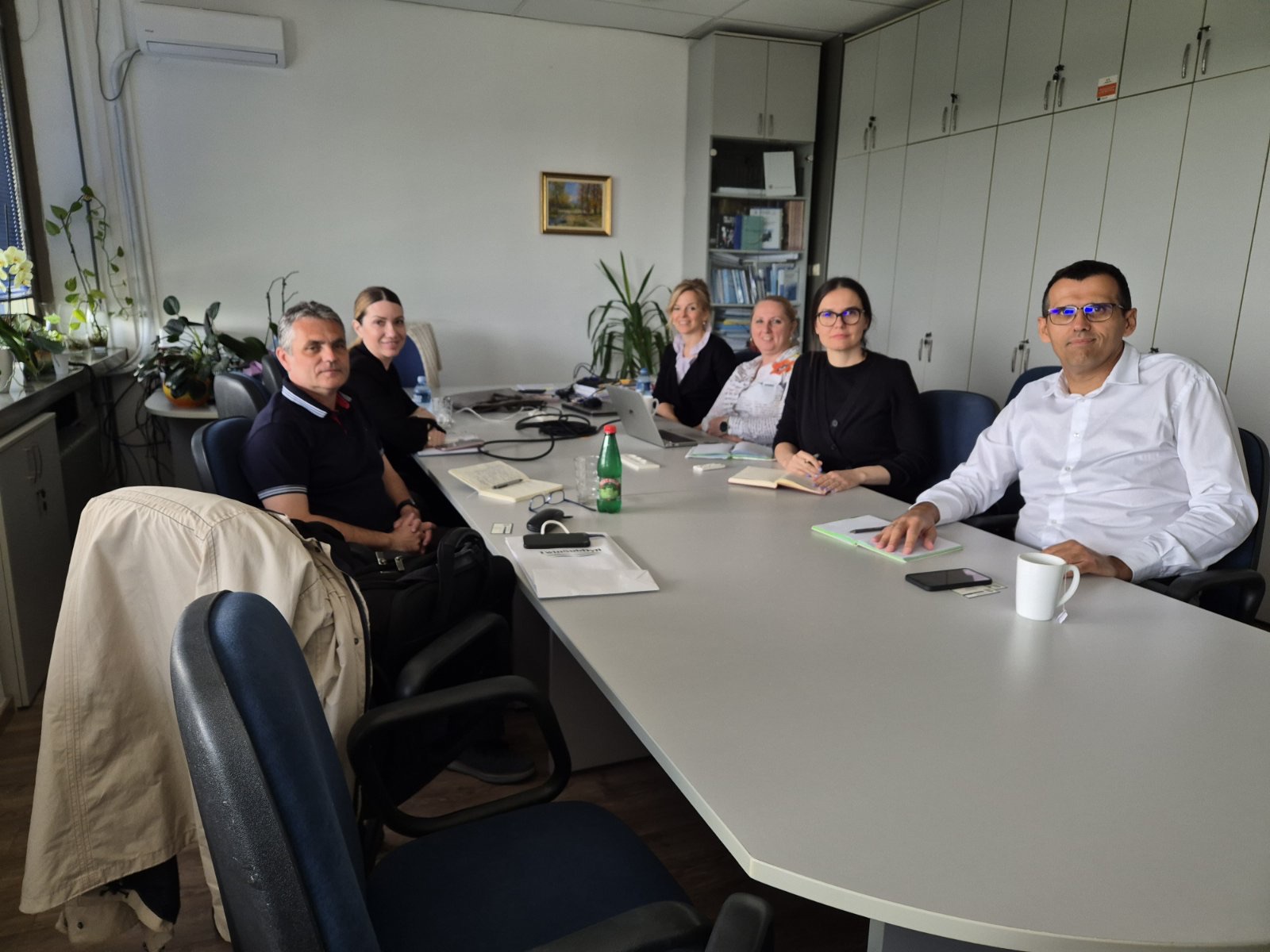
The follow-up on the workshop „The potential to commercialize OSA application“
The meeting with the representatives of the Serbian Biogas Association Goran Knežević, President of the Association, and Lidija Zelić, Managing Director, was held on May 9, 2024, at the UNSPMF. Participants of the meetining from UNSPMF were Snežana Maletić, Srđan Rončević, Marijana Kragulj Isakovski and Jasna Atanasijević.
During discussions, the Association representatives outlined the landscape of biogas production from agricultural residues, emphasizing the potential for constructing biopower plants and the availability of raw materials. Recognizing overlapping interests between biogas producers and OSA manufacturers regarding raw materials, the idea of a complementary approach emerged, leveraging digestate from biogas production for OSA production.
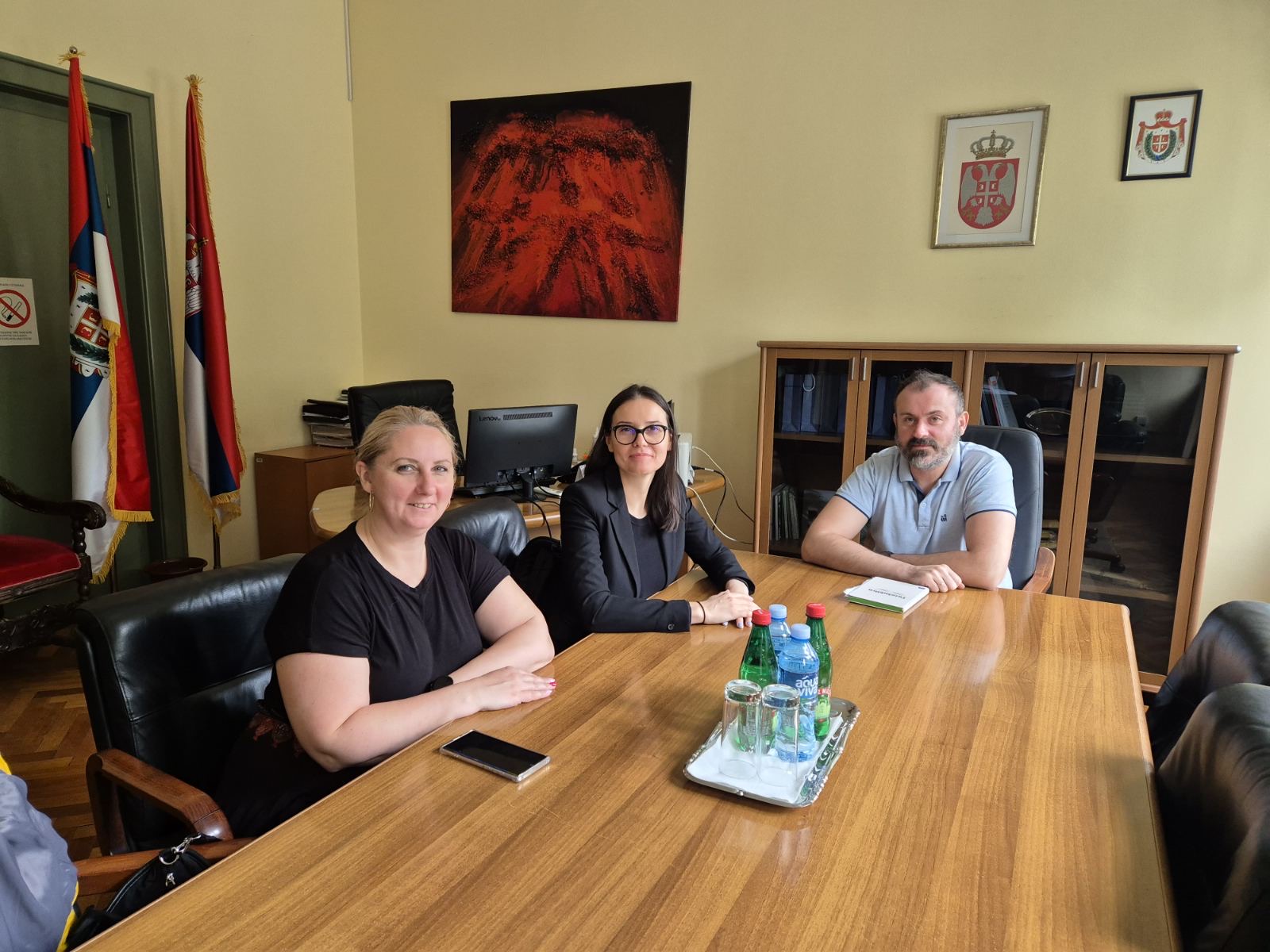
The follow-up on the workshop „Overcoming challenges in the application of organic soil additives - synergy of science and economy“
The meeting hosted at the Government of Vojvodina, bringing together decision-makers represented by Provincial Secretary for Urban Planning and Environmental Protection, Dragan Đurica, and project team members Snežana Maletić and Marijana Kragulj Isakovski.
The meeting concluded on a note of optimism and shared commitment to collaborative efforts aimed at surmounting challenges associated with the application of organic soil amendments and mitigating greenhouse gas emissions in agricultural practices in Vojvodina. Through a concerted effort to leverage the synergy between science and economy, coupled with fostering collaboration among key stakeholders, participants expressed confidence in effecting positive change and advocating for sustainable agricultural practices tailored to the specific needs of the region.
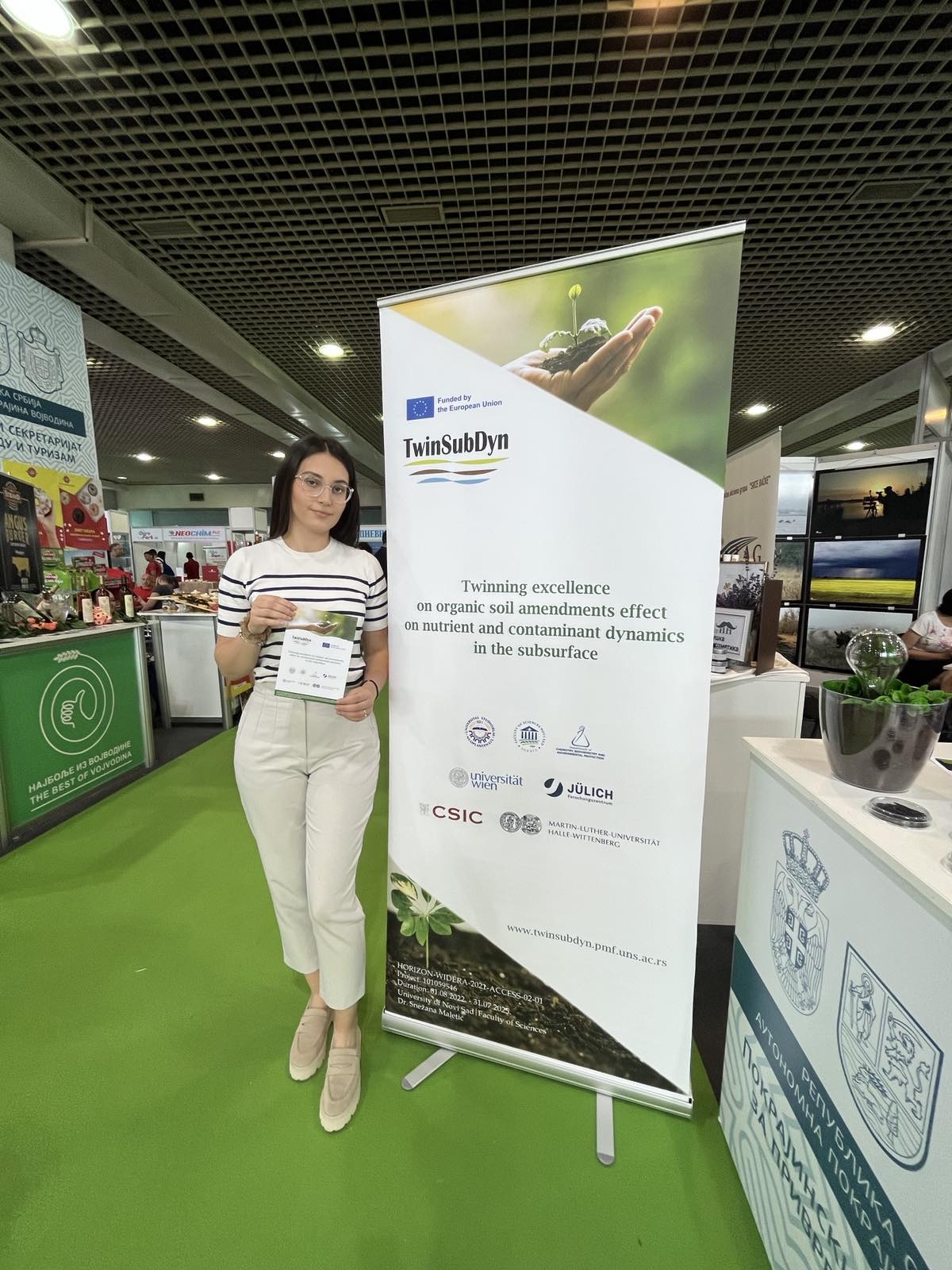
TwinSubDyn at the 91st International Agricultural Fair held from 18 to 23 May 2024 in Novi Sad.
TwinSubDyn project team member MSc Nina Đukanović presented a workshop "Resource revolution for sustainable development - knowledge transfer". The aim of this workshop was to increase scientific competence on the impact of organic soil amendments on contaminant and nutrient dynamics in the soil subsurface and implications for groundwater quality.
Interested visitors had the opportunity to develop their creative thinking and associative linking skills, exploring ways to improve environmental sustainability.
This fair event led to meaningful conversations and the sharing of valuable insights.
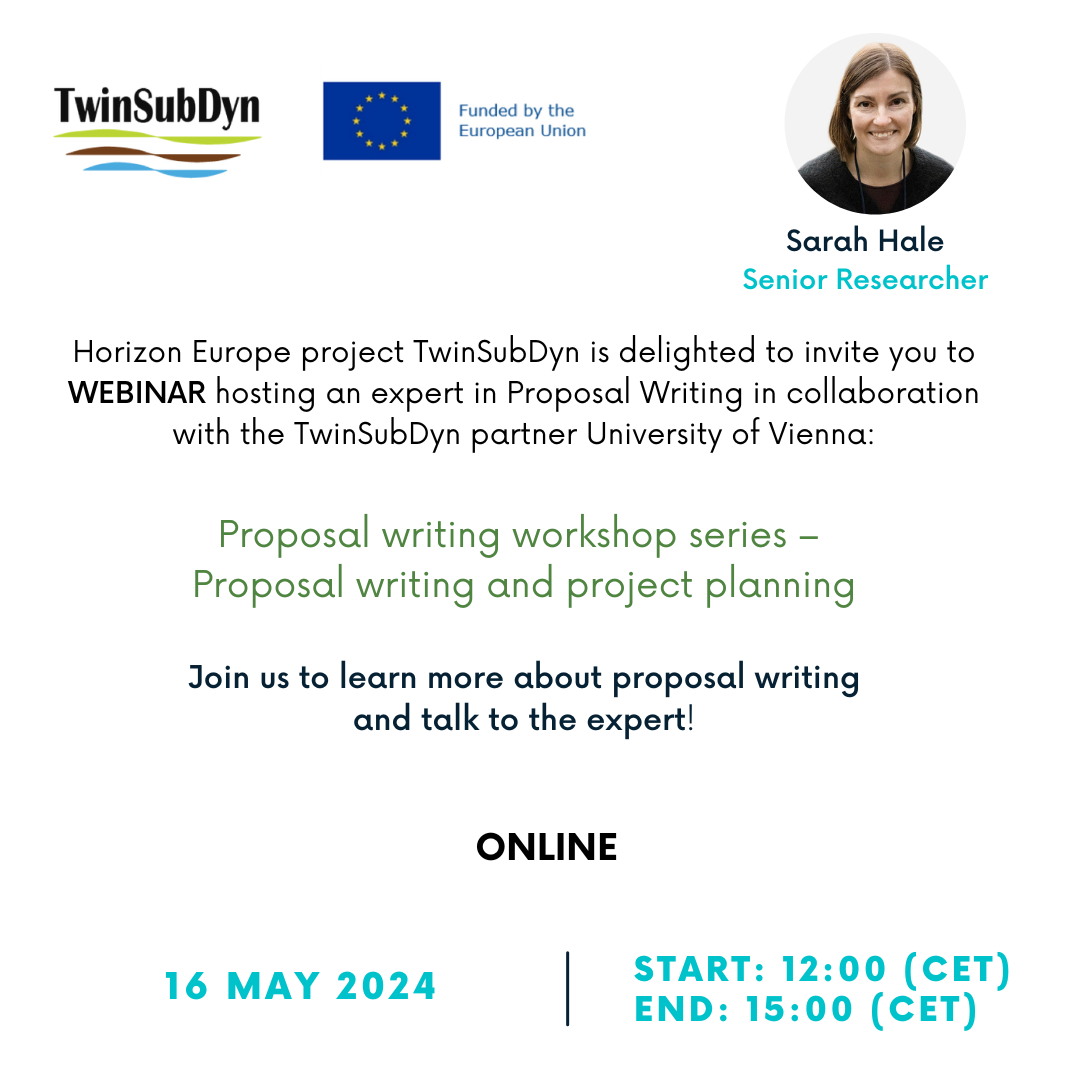
Dear Colleagues,
Horizon Europe project TwinSubDyn is delighted to invite you to WEBINAR hosting an expert in Proposal Writing in collaboration with the TwinSubDyn partner University of Vienna
TOPIC: Proposal writing workshop series – Proposal writing and project planning
Speaker: Sarah Hale, Senior Researcher
This webinar is the third in a series of three which will focus on (i) identification of promising funding schemes (held in September 2023), (ii) grant conceptualization and consortia building and (held in February 2024) and (iii) proposal writing and project planning. The webinar will focus on the essential skills of crafting effective proposals and project planning and it will include a question and answer session providing attendees with the opportunity to ask questions and engage with the presenter.
Key details can be found here.

First follow-up meeting
On April 26th, TwinSubDyn and ReNBES projects held first follow-up meeting in the Ministry of Environmental Protection of the Republic of Serbia. The initial subsequent gathering came after the March workshops in Novi Sad. These workshops focused on tackling hurdles in utilizing organic soil additives, particularly examining the legislative context and the interplay between scientific advancements and economic factors.
Since decision and policy makers are identified as one of the most important target groups within the project implementation it was crucial to go into a dialog with the Ministry. In our follow-up meeting, it's evident that sustainable soil management remains a pivotal issue, especially in the context of accommodating the needs of a growing population. The endorsement of the Green Agenda for the Western Balkans and the subsequent formation of the SWG group demonstrate a collective commitment to promoting sustainable agricultural practices and enhancing soil quality. The current focus of the SWG on implementing a standardized soil classification system and developing a digital soil map is commendable, as it lays the foundation for informed decision-making and targeted interventions. However, the concerns raised regarding the presence of pollutants in organic fertilizers, as well as the challenges surrounding sewage sludge management, highlight the complexity of the issues at hand. Addressing these contradictions at higher levels, including engaging policymakers, is essential to ensure effective and sustainable soil management practices.
Only through cooperation and dialogue between academia and authorities, the full potential of project outcomes can be reached to mutual benefit, leading to a great impact in this sector. Our discussions reaffirm the urgency of collaborative efforts and holistic approaches in addressing soil-related challenges, while also emphasizing the need for continuous research, policy refinement, and stakeholder engagement.
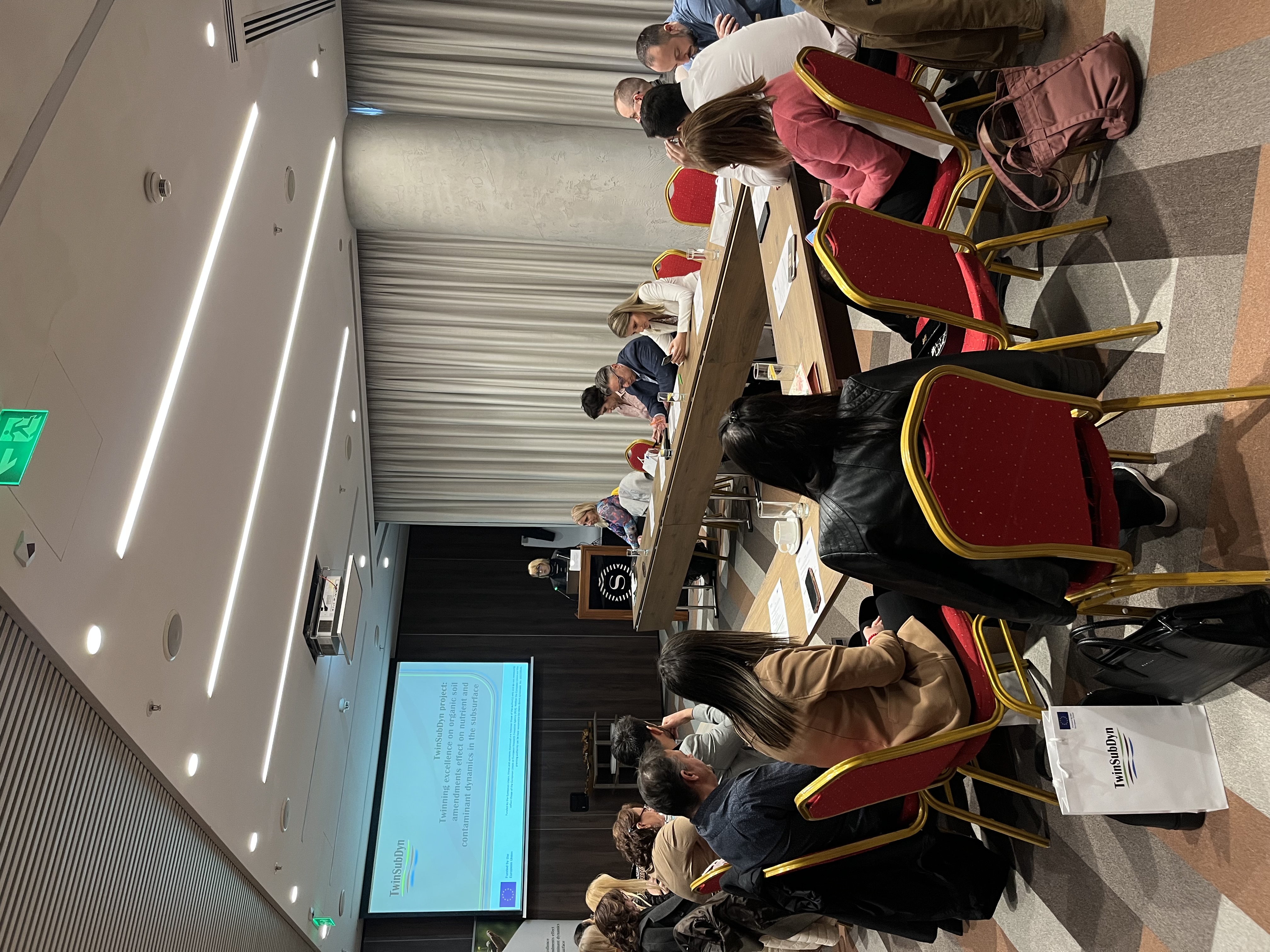
Exciting Updates from Novi Sad: Dissemination to the stakeholders and policymakers
Natural based efficient solution for remediation and revitalization of contaminated locations using energy crops (ReNBES) Funded by the Science Fund of the Republic of Serbia and Twinning excellence on organic soil amendments effect on nutrient and contaminant dynamics in the subsurface (TwinSubDyn) Twinning Western Balkans HORIZON-WIDERA-2021-ACCESS-02 presented their research, ideas and achievement to the stakeholders and policymakers.
On March 5th and 6th, Hotel Sheraton Novi Sad was buzzing with innovation and collaboration as the ReNBES and TwinSubDyn Consortium co-organized two dynamic workshops. The focus? Disseminating crucial insights to stakeholders and policymakers eager to dive into the world of environmental solutions.
Participants delved into a range of topics including soil remediation, risk assessment, biochar production, and the transformative potential of phytoremediation. The workshops weren't just about presentations; they were interactive, featuring panels and debates where team members and attendees could exchange valuable feedback. The agenda was comprehensive, covering all aspects of the project and inviting members to participate as speakers.
But it doesn't end there. The dissemination of knowledge won't stay confined within hotel walls. The TwinSubDyn Consortium will have a follow up meeting where we will outline plans for further outreach, plans, and research. The aim is to find the most suitable way to interact and communicate science with policy and stakeholders and vice versa.
Why does this matter? Because it's not just about academic discourse. It's about real-world impact. By fostering dialogue between academia, industry, and policymakers, these workshops pave the way for tangible change.
Stay tuned for more updates on the ripple effects generated by these dynamic workshops. The seeds of change have been sown, and the TwinSubDyn Consortium are leading the charge towards a greener, more sustainable future.
Dear Colleagues,
Horizon Europe project TwinSubDyn is delighted to invite you to WEBINAR hosting an expert in Proposal Writing in collaboration with the TwinSubDyn partner University of Vienna
TOPIC: Proposal writing workshop series – grant conceptualization and consortia building
Speaker: Sarah Hale, Senior Researcher
This webinar is the second in a series of three which will focus on (i) identification of promising funding schemes (held in September 2023), (ii) grant conceptualization and consortia building and (iii) proposal writing and project planning. The webinar will focus on how to mature an idea to a concept with viable results and then how to shape this in a proposal to meet the demands of a call. The webinar will also look at how to bring together the necessary partners to ensure success. These topics will be discussed by drawing upon examples in the Horizon Europe program. The webinar will end with a question and answer session providing attendees with the opportunity to ask questions and engage with the presenter.
Additional details can be found here

Announcement of TwinSubDyn Summer School
It is a pleasure for the TwinSubDyn team to announce and host the Summer School on Sustainable organic amendment application from a soil and ground water management perspective: scientific basis, challenges, and perspectives that will be held at Novi Sad in June 2025.
Main topics of the Summer School are:
• organic amendment application
• soil management
• ground water management
Stay tuned for more details as the program unfolds.
We welcome your valuable input! If you have any suggestions regarding topics or wish to provide feedback on our knowledge HUB, please feel free to share your insights at: knowledge-hub.pmf.uns.ac.rs
CAPACITY OF PARTICIPANTS AND CONSORTIUM AS A WHOLE
We have chosen our project partners from EU institutions we have previously collaborated with or with which we currently have on-going research collaborations. In addition, there is only one partnering organization with which we have established cooperation only recently, and we want to strengthen our links with that group. All partners were chosen carefully to help us unlock our research potential in the specific research areas we have identified as our specific scientific objectives.
UNIVERSITY OF NOVI SAD, FACULTY OF SCIENCES
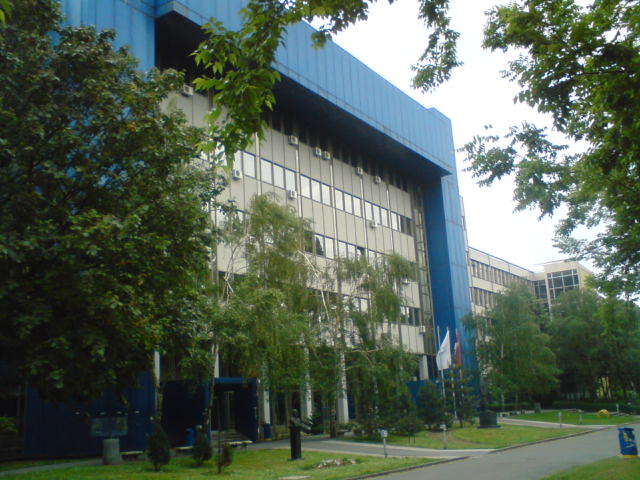
read more
CONTACT PERSON
Snezana Maletic e-mail:snezana.maletic@dh.uns.ac.rs
UNIVERSITY OF VIENNA
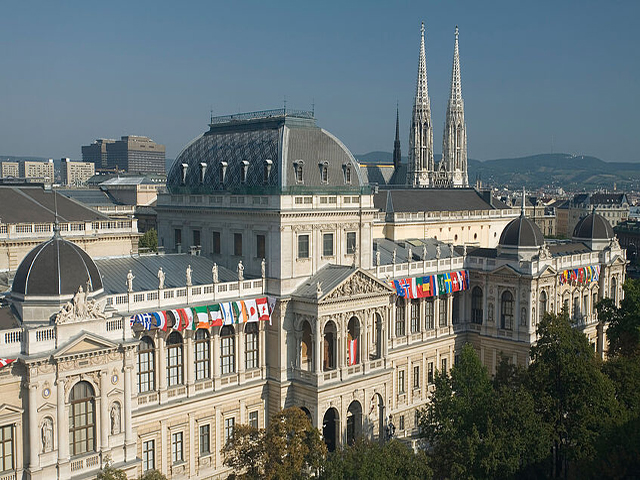
read more
CONTACT PERSON
Sigmund Gabriel e-mail: gabriel.sigmund@univie.ac.at
FORSCHUNGSZENTRUM JÜLICH
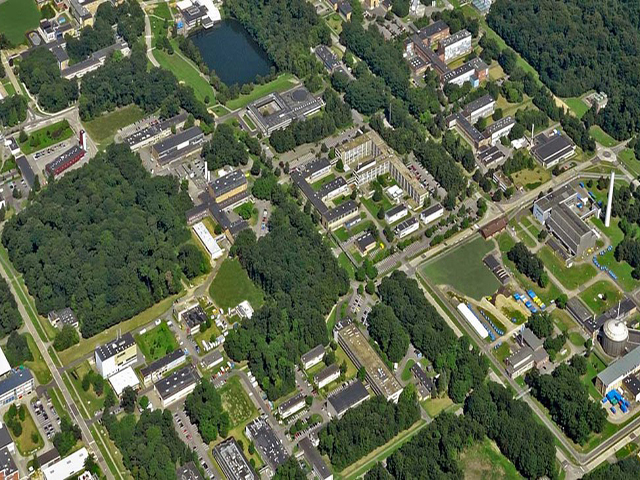
read more
CONTACT PERSON
Bol, Roland e-mail: r.bol@fz-juelich.de
MARTIN LUTHER UNIVERSITY HALLE-WITTENBERG
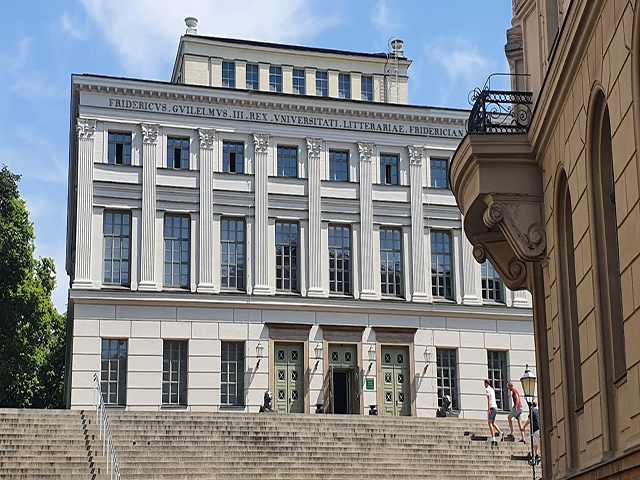
read more
CONTACT PERSON
Bruno Glaser e-mail: bruno.glaser@landw.uni-halle.de
CONSEJO SUPERIOR DE INVESTIGACIONES CIENTÍFICAS
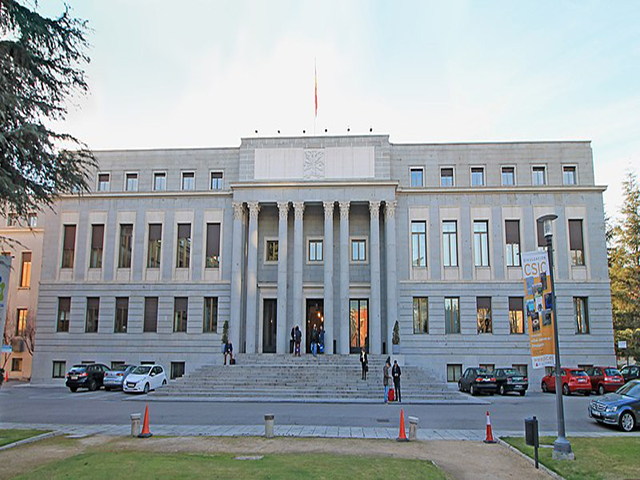
read more
CONTACT PERSON
Heike Knicker e-mail: knicker@irnase.csic.es

